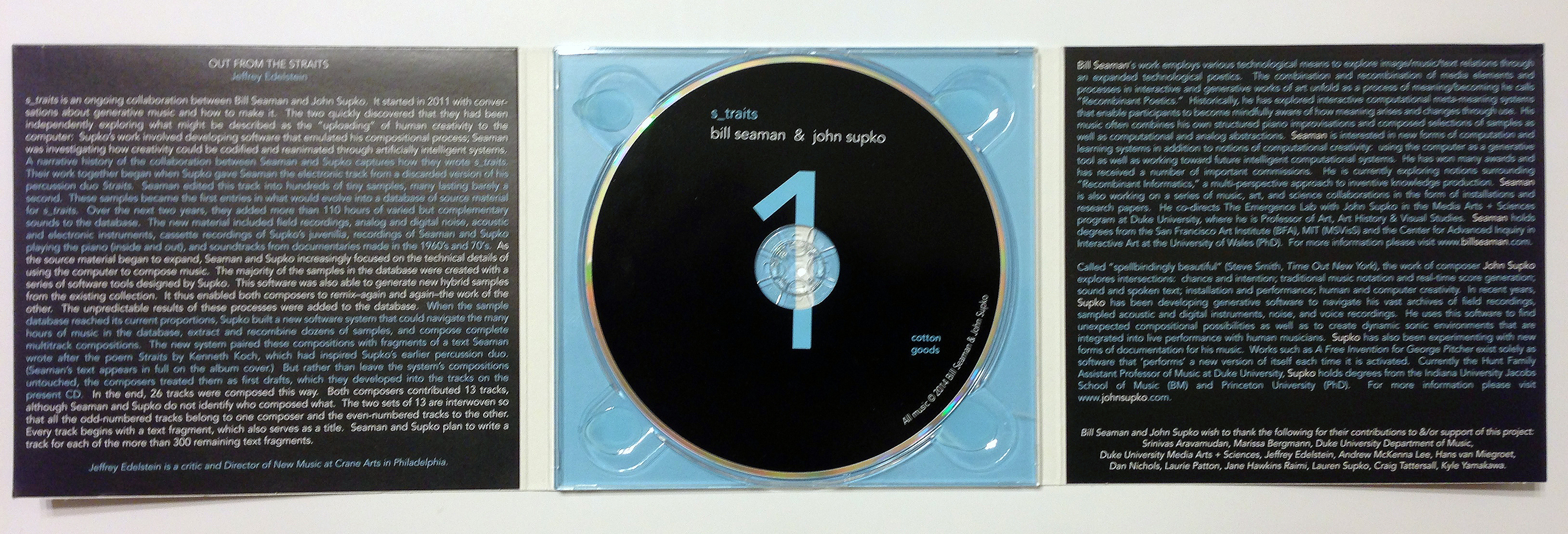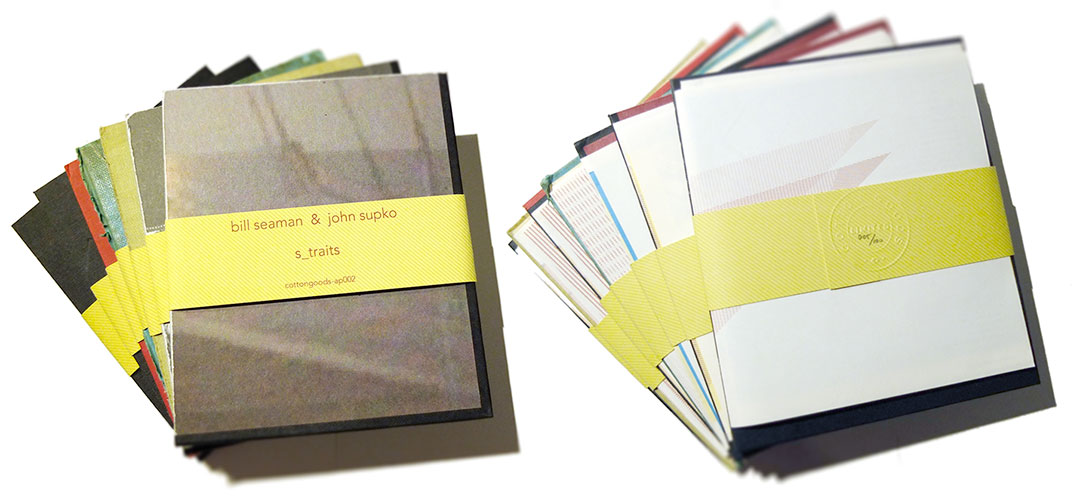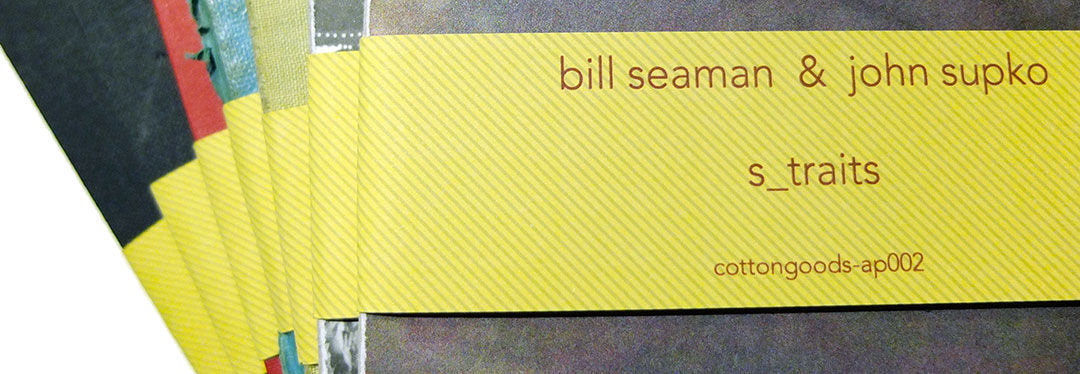s_traits
s_traits
s_traits is an album of generative electronic music I made with Bill Seaman. It was released in 2014 on the Manchester (UK) label Cotton Goods.
We started our collaboration by making a sample library from the discarded electronic track to an early version of my percussion duo Straits. Eventually, we compiled more than 110 hours of audio source material over a three-year period. The sources included field recordings, analog and digital noise, acoustic and electronic instruments, cassette recordings of my juvenilia, recordings of Bill and me playing the piano (with and without preparations), and soundtracks from documentaries made in the 1960’s and 70‘s.
Over time, it became clear that the collection of sound files was too large for us explore manually. Bill and I began to discuss the development of a musically intelligent system that could quickly access any files in any part of the sample library, and I shortly got to work prototyping it in Max/MSP. The final incarnation of the system, which we eventually gave the punning name “bearings_traits”, can select, edit, manipulate, and recombine samples from our library to create spontaneous, multitrack compositions.
I let the bearings_traits run for hours during which it composed hundreds of “first drafts”. Each of the computer’s compositions starts with a short phrase, which is spoken by Bill. These phrases come from the 300-line recombinant poem Bill wrote in response to Kenneth Koch’s poem Straits. The phrases, which are chosen by the computer for each “draft”, function as titles. We chose 26 of these “drafts”–13 for each of us–to elaborate and refine into the 80-minute album. The finished pieces are arranged on alternating odd- and even-numbered tracks. We don’t, however, disclose who made the even tracks and who made the odd ones.
Cotton Goods released s_traits in two physical editions in addition to a digital download.




Out from the Straits [liner notes]
Jeffrey Edelstein"s_traits" is an ongoing collaboration between Bill Seaman and John Supko. It started in 2011 with conversations about generative music and how to make it. The two quickly discovered that they had been independently exploring what might be described as the “uploading” of human creativity to the computer: Supko’s work involved developing software that emulated his compositional process; Seaman was investigating how creativity could be codified and reanimated through artificially intelligent systems.
A narrative history of the collaboration between Seaman and Supko captures how they wrote "s_traits." Their work together began when Supko gave Seaman the electronic track from a discarded version of his percussion duo "Straits." Seaman edited this track into hundreds of tiny samples, many lasting barely a second. These samples became the first entries in what would evolve into a database of source material for "s_traits." Over the next two years, they added more than 110 hours of varied but complementary sounds to the database. The new material included field recordings, analog and digital noise, acoustic and electronic instruments, cassette recordings of Supko’s juvenilia, recordings of Seaman and Supko playing the piano (inside and out), and soundtracks from documentaries made in the 1960’s and 70‘s.
As the source material began to expand, Seaman and Supko increasingly focused on the technical details of using the computer to compose music. The majority of the samples in the database were created with a series of software tools designed by Supko. This software was also able to generate new hybrid samples from the existing collection. It thus enabled both composers to remix–again and again–the work of the other. The unpredictable results of these processes were added to the database.
When the sample database reached its current proportions, Supko built a new software system that could navigate the many hours of music in the database, extract and recombine dozens of samples, and compose complete multi-track compositions. The new system paired these compositions with fragments of a text Seaman wrote after the poem "Straits" by Kenneth Koch, which had inspired Supko’s earlier percussion duo. (Seaman’s text appears in full on the album cover.) But rather than leave the system’s compositions untouched, the composers treated them as first drafts, which they developed into the tracks on the present CD.
In the end, 26 tracks were composed this way. Both composers contributed 13 tracks, although Seaman and Supko do not identify who composed what. The two sets of 13 are interwoven so that all the odd-numbered tracks belong to one composer and the even-numbered tracks to the other. Every track begins with a text fragment, which also serves as a title. Seaman and Supko plan to write a track for each of the more than 300 remaining text fragments.
[Jeffrey Edelstein is a critic and Director of New Music at Crane Arts in Philadelphia.]